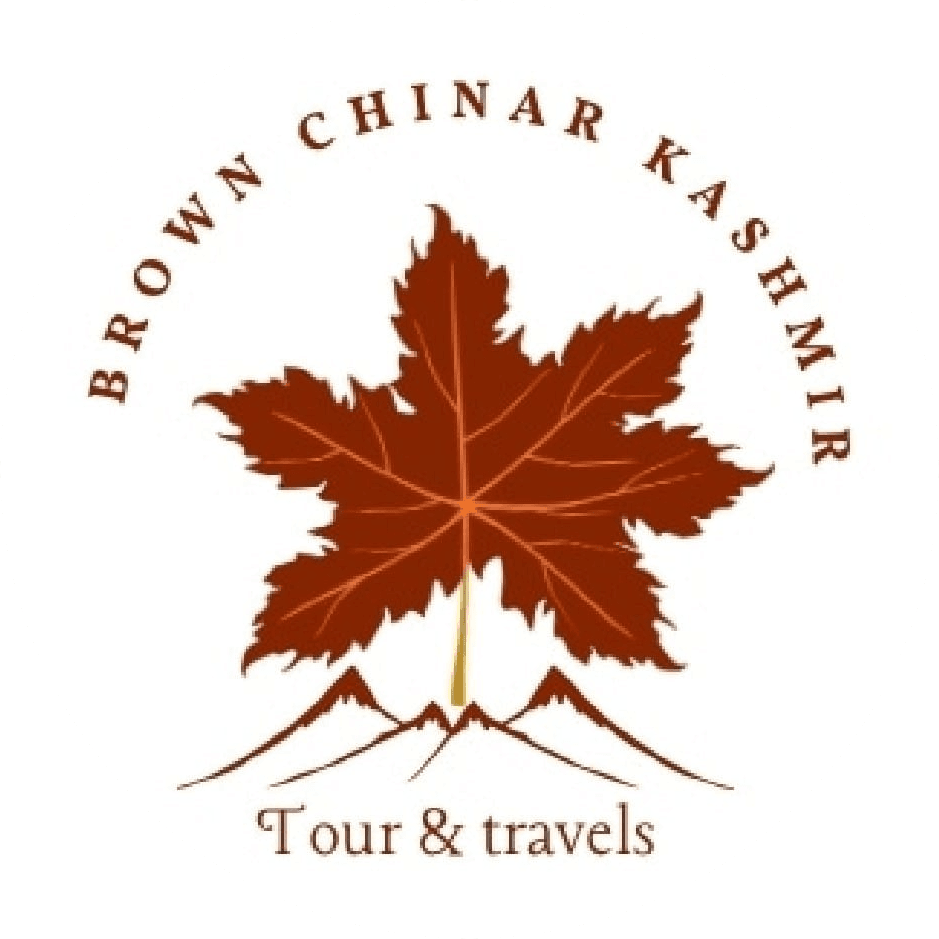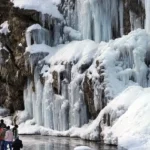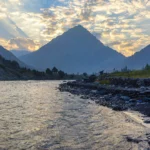Table of Contents
Toggle- Overview
- What Is a Shikara Ride?
- History and Cultural Significance
- Best Time to Go on a Shikara Boat Tour
- Best Shikara Ride Routes and Itineraries
- How to Select the Best Shikara Operator
- What to Expect: Onboard Experience
- Essential Tips for an Unforgettable Shikara Ride
- Photography and Videography: Preserving the Essence
- Safety and Etiquette on Board
- Beyond the Ride: What to Pair with Your Shikara Experience
- Sustainability and Supporting the Local Community
- Conclusion
- How to book Kashmir tour online?
- People Also Ask
- What is a Shikara ride on Dal Lake?
- How much does a Shikara ride cost per hour?
- When is the best time to book a Shikara boat tour?
- How do I book a Shikara ride in Srinagar?
- What are the top Shikara ride routes?
- How long should a Shikara ride last?
- Can I enjoy refreshments on a Shikara tour?
- Are life jackets provided on Shikara boats?
- What should I wear for a Shikara ride?
- Is photography allowed during Shikara rides?
- Do Shikara boatmen speak English?
- Can I bargain the Shikara ride price?
- What is the floating vegetable market on Dal Lake?
- Are Shikara rides safe in monsoon season?
- Can I customize my Shikara itinerary?
- What wildlife can I see on a Shikara ride?
- Is tipping customary after a Shikara boat tour?
- How do Shikaras differ from houseboats?
- Can I take a Shikara ride on Nigeen Lake?
- What is the “Sunset Shikara cruise” experience?
- Do Shikara operators accept credit cards?
- How far in advance should I book a Shikara ride?
- Are Shikara rides wheelchair accessible?
- What should I know about weather on Dal Lake?
- How can I support sustainable Shikara tourism?
- Inquiry Form
Overview
Gliding softly on the lake-like waters of Dal Lake, a Shikara ride in Srinagar takes you into a realm of peaceful beauty, colorful culture, and ageless charm. If you’re looking for a romantic holiday, a peaceful morning outing, or a memorable boat ride in Kashmir, the Shikara boat tour guarantees an experience that stays in your heart even after the ride is over.

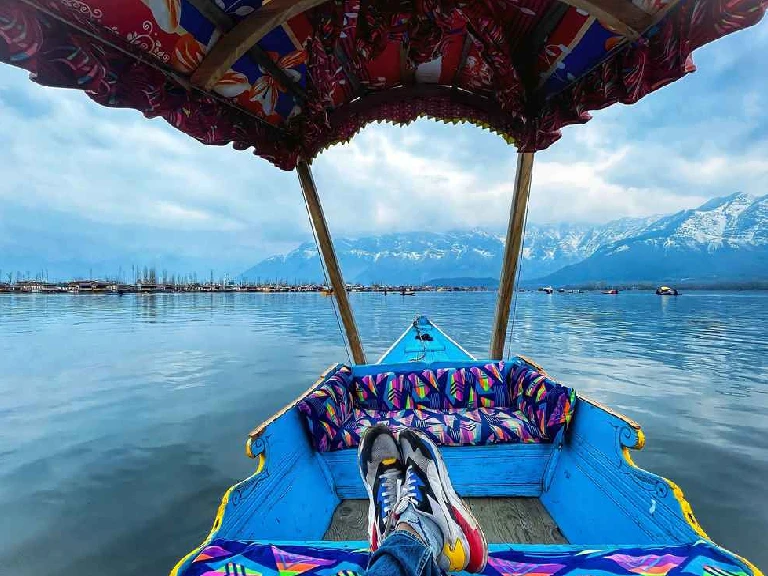
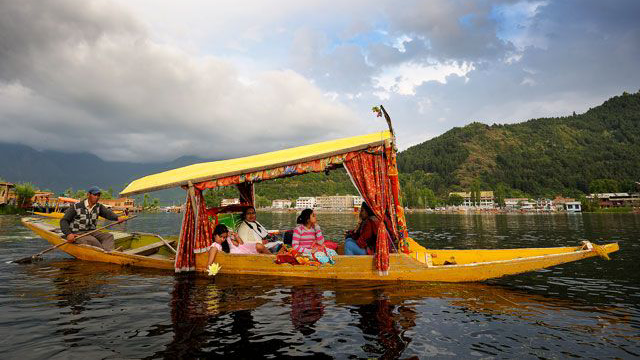
What Is a Shikara Ride?
Shikara is a wooden boat, hand-carved from cedar wood, and specifically designed to float effortlessly on Kashmir’s renowned lakes. Sentimentally adorned with colorful cushions, canopies, and ornate trimmings, Shikaras reflect the wealth of Srinagar’s heritage. Shikara ride on Dal Lake” is a term that immediately brings to mind pictures of tranquil waters, floating gardens, and vibrant markets.
More than a mere boat ride, a Shikara experience is a dip into the essence of Kashmir. Boatmen, usually dressed in the traditional pheran, propel these boats with long oars, taking tourists through slender waterways, green patches of lotus flowers, and alongside houseboats that appear to float on water.
History and Cultural Significance
Shikaras date back centuries in their origins as vital transportation in the twisting waterways of the Kashmir Valley. Centuries ago, the boats carried merchandise, transported families, and even provided floating classrooms for kids in backwater hamlets along the way. With the passage of time, they turned into ornamental pleasure craft and became synonymous with Kashmiri hospitality.
- Origins: Made from cedar wood locally available, the Shikara form was developed for stability and elegance, permitting it to journey on tranquil lakes as well as moving canals.
- Evolution: From being a utilitarian means of transportation, it grew into an art form—each Shikara is painted and embellished by hand to capture the beauty of Kashmiri artisanal values.
- Cultural Role: Shikara boatmen usually double as experts who provide information about Mughal gardens, Dal Lake’s ecology, and local lore.
Weaving this rich history into your Shikara boat tour enhances your appreciation, turning a mere boat ride into a tourist experience much more than that.
Best Time to Go on a Shikara Boat Tour
Timing is everything when scheduling your Kashmir Shikara boat tour:
- Spring (March–May): See floating tulip gardens and flowering chinar trees. Pleasant weather and sunny skies provide ideal photography opportunities.
- Summer (June–August): Best for early morning Dal Lake rides before the heat of the day. Experience cooler nights and longer daylight.
- Autumn (September–November): Autumn’s golden colors reflect off the lake, painting a stunning picture. It’s also the time for fewer tourists and low-cost Shikara ride fares.
- Winter (December–February): Although Dal Lake freezes partially, some parts remain accessible, providing a special winter Shikara experience with rosy sunrise views.
For the quintessential “sunrise Shikara ride” or the bewitching “evening Shikara cruise,” time your departure at dawn or dusk when the lake waters are most reflective.
Best Shikara Ride Routes and Itineraries
Each Shikara ride tells a unique tale. Here are the unmissable experiences:
Classic Dal Lake Loop (1–2 hours)
Highlights: Vegetable gardens floating on the water, patches of lotus, and bird’s-eye views of the Zabarwan Hills.
Nigeen Lake Excursion (2–3 hours)
Highlights: Peaceful waters less visited by tourists, verdant lotus flowers, and glimpses of the famous Nigeen Houseboats.
Local Insight: Whispers tell of Mughal princes furtively meeting dal Lake’s nooks—your boatman could regale you with these stories as you sail past willow-lined islets.
Heritage Route via Khushal Sar (Half-day)
Highlights: Historic rivers, old-style floating markets where locals hawk fresh fruits and veggies, and tranquil winter landscapes if you visit in cold weather.
Sunset Romantic Cruise (1.5 hours)
Highlights: Golden orange sun fading on glistening waters, soft Kashmiri folk music playing, and the chance to stop and have a riverside chai at a floating café after the ride.
Budget Tip: Reserve early for group rates, particularly during peak summer travel.
How to Select the Best Shikara Operator
With many Shikara services along Dal Lake’s shores, choosing a good Shikara operator is important:
- Licensed Operators: Make sure your boatman has a valid license. Licensed “Dal Lake Shikara ride” services usually provide safety equipment and guided commentary.
- Transparent Pricing: Request prices up front—basic Shikara ride fares will cost between INR 400–800 an hour, though special tours could be more. Specify inclusions such as snack stops, photography breaks, or guide fees.
- Boat Condition: Check that the Shikara has well-built woodwork, clean, well-maintained cushions, and a firmly secured canopy to protect you from unexpected sun or rain.
- Local Reviews: Look for suggestions from other travelers or check reputable travel blogs. Phrases such as “best Shikara ride Srinagar” in travel reviews can lead your decision.
What to Expect: Onboard Experience
A Shikara ride is transit with a difference—it’s a sensory experience:
- Seating & Amenities: Comfortable cushioned seating, intricate wooden ornaments, and a low canopy provide comfort and protection from the sun.
- Local Flavors: Most operators serve Kashmiri kahwa (saffron-flavored green tea with almonds) and phirni (rice pudding) on longer rides.
- Narration & Music: Storytelling is common among boatmen. They relate tales about Mughal emperors, local folklore, and ecological observations. Some even play gentle folk music on a rabab or santoor.
- Photography Stops: Ask your boatman to stop at the best places for photographs—willow-covered banks, Himalayan backdrops, and floating gardens.
Essential Tips for an Unforgettable Shikara Ride
- Timing Is Everything
Sunrise rides provide misty peace; evening cruises unveil glistening reflections.
- Dress Comfortably
Wear layers—dawns can be cool, afternoons hot. A shawl or light jacket proves useful.
- Protect Your Electronics
Take a waterproof pouch for phones and cameras. Delicate oar splash can lead to accidents.
- Respect Local Customs
Ask permission before taking pictures of boatmen or drifting vendors. A little tip (INR 50–100) is polite.
- Bargain Wisely
During shoulder seasons, prices can be negotiable. But don’t lowball—good wages support this cultural practice.
Photography and Videography: Preserving the Essence
A Shikara ride is a photographer’s dream come true. To get the most out of your “Kashmir Shikara ride photography”:
- Golden Hour Magic: Shoot during early morning or late afternoon light when the lake takes on a golden hue and shadows define the landscape.
- Wide-Angle Shots: Record the immensity of Dal Lake, far-off Himalayan ranges, and the clusters of houseboats sprawled in front.
- Close-Up Details: Get close-up shots of ornately carved wooden prow tips, bobbing marigold garlands wrapped around the bow, and ripples resulting from the soft arc of the oar.
- Drone Alternatives: Drones are permitted, but you can duplicate aerial shots by scaling the roof of a neighboring houseboat (after taking permission).
- Video Tours: A steady gimbal or stabilizer takes your Shikara ride to a professional-grade travelogue, capturing all sides of the paradise on water.
Safety and Etiquette on Board
While generally safe, a few precautions ensure your Shikara boat tour remains worry-free:
- Life Jackets: Request life jackets, especially if you’re not a confident swimmer.
- Stable Seating: Avoid sudden movements; the Shikara’s low center of gravity can become unstable if everyone leans to one side.
- Respect Nature: Do not litter; bring back any garbage to shore.
- Floating Flora: Do not uproot lotus flowers or vegetables—these floating gardens are crucial to the ecosystem of the lake.
Etiquette also means being respectful towards your boatman. A 10–15% tip on the fare is standard if the service has been good. Civilized chat, a willing ear for local lore, and a warm smile make a difference.
Beyond the Ride: What to Pair with Your Shikara Experience
Enhance your visit by pairing the Shikara boat tour with attractions near by:
- Mughal Gardens: Stop by Nishat Bagh and Shalimar Bagh, crafted by emperors, just a few minutes from Dal Lake’s shores.
- Floating Vegetable Market: Wake up early (around 5 AM) to see vendors sell vegetables from their boats—a living, vibrant market on water.
- Houseboat Stays: Overnight on a typical houseboat, with carved interiors, top-deck vistas, and cozy Kashmiri hospitality.
- Local Handicraft Bazaars: Get off at the lakeside to visit stalls providing pashmina shawls, papier-mâché items, and fine embroidery.
Combining a Shikara ride with these activities turns your travel plan into an effortless sail through Kashmir’s cultural mosaic.
Sustainability and Supporting the Local Community
Your support of Shikara services goes directly to local boatmen and their families, keeping this ancient tradition alive. To give back positively:
- Select Eco-Friendly Operators: Certain services follow biodegradable waste management and discourage plastic usage onboard.
- Promote Fair Wages: Inquire about inclusive pricing that supports boatmen year-round, even in off-season months.
- Spread Awareness: Share your Shikara ride experiences on social media using hashtags like #DalLakeShikara and #KashmirBoatTour to inspire responsible tourism.
Conclusion
A Shikara boat ride on Dal Lake is more than a sightseeing tour—it’s a trip through history, an ecology lesson, and a dip into Kashmiri culture. From the gentle ripples of water to the blooming lotus beds and sweet Kashmiri folk music, every second on board a Shikara boats tour is like a scene from a living postcard.
Whether you’re planning a romantic couple’s cruise at sunset, an early-morning adventure through floating markets, or a comprehensive heritage route, this Shikara experience will etch itself into your travel memories. So pack your shawl, charge your camera, and set sail on the tranquil waters of Srinagar to discover the timeless allure of Kashmir’s Shikara rides.
How to book Kashmir tour online?
Contact Brown Chinar at +91 6005039532/+91 9906188874 or Email us at : Enquiry@brownchinarkashmir.com
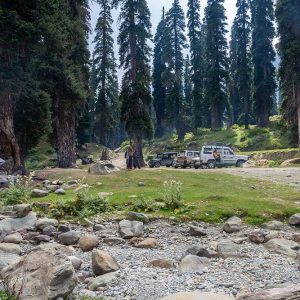
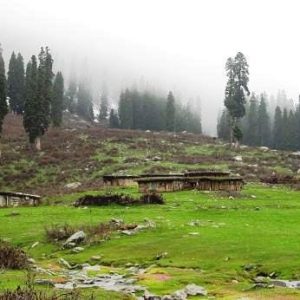
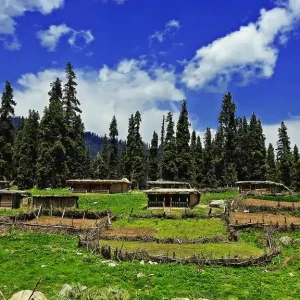
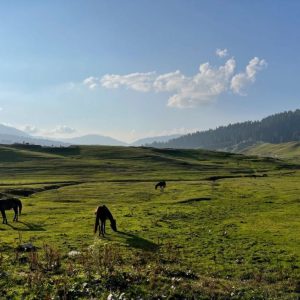
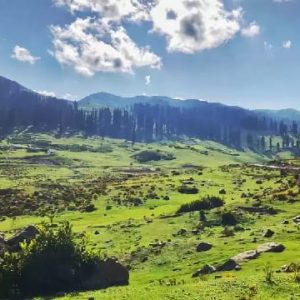
People Also Ask
What is a Shikara ride on Dal Lake?
A Shikara ride on Dal Lake is a traditional wooden boat tour in Srinagar, offering scenic views of floating gardens, houseboats, and Himalayan reflections.
How much does a Shikara ride cost per hour?
Standard Shikara ride prices range from INR 500 to INR 800 per hour, depending on season, route, and included amenities.
When is the best time to book a Shikara boat tour?
Early morning (6–8 AM) or late afternoon (4–6 PM) offers calm waters, soft light for photography, and fewer crowds on Dal Lake.
How do I book a Shikara ride in Srinagar?
You can book online via Srinagar travel portals, through your hotel concierge, or by negotiating directly with licensed boatmen at Dal Lake’s shores.
What are the top Shikara ride routes?
Popular routes include the Classic Dal Lake Loop, Nigeen Lake Excursion, Khushal Sar Heritage Route, and Romantic Sunset Cruise.
How long should a Shikara ride last?
Most visitors choose 1–2 hour tours. Half-day (3–4 hours) and full-day (6–8 hours) packages are available for in-depth exploration.
Can I enjoy refreshments on a Shikara tour?
Yes—many operators offer Kashmiri kahwa (green tea), phirni (rice pudding), and light snacks on longer Shikara boat tours.
Are life jackets provided on Shikara boats?
Licensed Shikara operators carry life jackets. Always request one if you’re not a confident swimmer or traveling with children.
What should I wear for a Shikara ride?
Wear comfortable, layered clothing—a shawl or light jacket for cool mornings, and sun protection (hat, sunglasses) for midday cruises.
Is photography allowed during Shikara rides?
Absolutely—Shikara rides on Dal Lake are a photographer’s dream, featuring floating gardens, colorful houseboats, and Himalayan backdrops.
Do Shikara boatmen speak English?
Many boatmen speak basic English and share stories of Mughal gardens, local folklore, and Dal Lake ecology during your Shikara ride.
Can I bargain the Shikara ride price?
In shoulder seasons, you can negotiate a fair rate, but avoid undercutting—sustainable pricing helps support local boatmen and their families.
What is the floating vegetable market on Dal Lake?
An early-morning Shikara ride can take you to the floating vegetable market, where local vendors sell produce directly from their boats.
Are Shikara rides safe in monsoon season?
Monsoon (July–September) brings heavier rains; morning rides are generally safe, but always check weather forecasts and operator advisories.
Can I customize my Shikara itinerary?
Yes—many operators offer personalized routes, photography stops, heritage walks, and combined land-and-boat experiences.
What wildlife can I see on a Shikara ride?
Look for migratory birds like herons, egrets, and tufted ducks, as well as native carp and lotus blooms in Dal Lake’s shallow waters.
Is tipping customary after a Shikara boat tour?
A tip of 10–15% of the fare is appreciated. Small gestures (INR 50–100) reward attentive service and local storytelling.
How do Shikaras differ from houseboats?
Shikaras are small, open wooden boats for day tours; houseboats are large, anchored accommodations with carved interiors and overnight stays.
Can I take a Shikara ride on Nigeen Lake?
Yes—Nigeen Lake offers quieter, less crowded Shikara rides amid lotus fields and willow-lined shores.
What is the “Sunset Shikara cruise” experience?
A Sunset Shikara cruise (1–1.5 hours) features golden-hued waters, folk music, and optional lakeside chai at floating cafés.
Do Shikara operators accept credit cards?
Most boatmen operate on a cash-only basis; carry sufficient Indian rupees to cover fare, tips, and any onboard refreshments.
How far in advance should I book a Shikara ride?
During peak season (May–July), book at least 1–2 days ahead; off-peak you can often arrange same-day rides directly on the lakebank.
Are Shikara rides wheelchair accessible?
Shikaras have low, narrow boarding points and are not wheelchair-friendly. Houseboat access and nearby gardens are similarly limited.
What should I know about weather on Dal Lake?
Srinagar’s weather varies: cool springs, warm summers, crisp autumns, and chilly winters—check daily forecasts before planning your Shikara ride.
How can I support sustainable Shikara tourism?
Choose eco-friendly operators, avoid single-use plastics onboard, tip fairly, and share your responsible travel experiences with #DalLakeShikara.
